
There’s one moment I’ll never forget from when Dad was on his deathbed.
While in and out of consciousness, he suddenly sat up and pointed at me – without saying a word. A few seconds later, his head and arm dropped, then he drifted back to sleep.
Was he trying to tell my three older siblings to look after me because I’m the youngest? Or was it something more sinister?
After 15 hours of first arriving at A&E, he was gone. Then, within two weeks, I was diagnosed with a brain tumour at just 21 years old.
I know it sounds completely farfetched, but I often wonder if somehow he knew about my condition before anyone else did. In my darkest moments – and I know this is impossible – I’ve even blamed him for somehow giving his cancer to me.
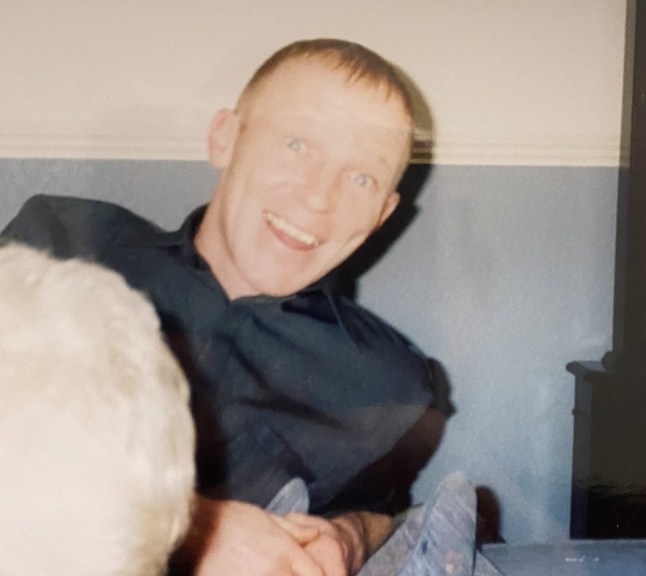
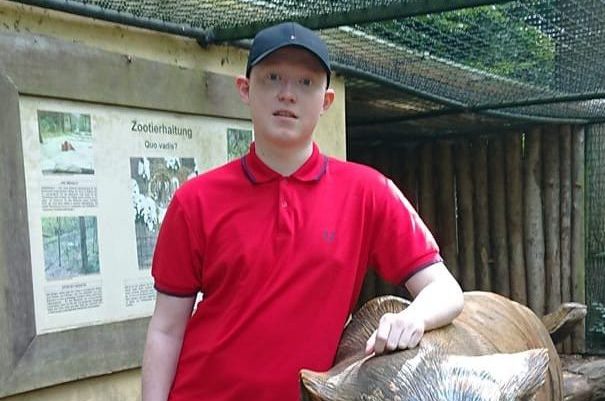
It was August 2018 when Dad first sat me down and told me he had colon cancer. He was a man of few words, but I got the impression he just wanted to get on with things and not worry his four children.
Towards the end of his life around the start of 2019, he had lost a lot of weight, was very lethargic, couldn’t keep any food down and had to have a stoma bag fitted.
On 18 April, I was at my brother’s house when we got the call from my uncle that Dad was now in A&E and we needed to get there immediately as he wouldn’t be around for much longer. It was absolutely devastating news.
When we got there, doctors told us he was in a lot of pain so he was heavily sedated. Dad passed away in the early hours of the next day, surrounded by all his loved ones.
It was actually his birthday on 22 April so we gathered for drinks to celebrate his life. A week later, we were clearing out his house ahead of his funeral.
That’s when I started to get sudden severe migraines. At one point, it hurt to look at anything in the light so I was shielding my head under a blanket.
My brothers thought I was just joking around, but I had honestly never experienced such an intense pain like it before and knew something was wrong. Even though I hate going to the doctor, my mum could see the pain I was in and urged me to go.
Sign up to the Metro.co.uk Lifeline challenge
This year Metro.co.uk is proudly supporting Young Lives vs Cancer for our 2024 Lifeline campaign.
To help raise vital funds for the charity we are calling on our readers to join us on on 18 May for an an epic hike along the beautiful Jurassic Coast.
You can choose to do 25km or 58km and registration starts at just £15 with a fundraising minimum of £240 (25km) / £360 (58km). Alternatively, you can pay for your place and set your own fundraising target.
Whether you want to do it as a group or are signing up solo, as part of Team Lifeline, you’ll receive tons of support and advice, so that every step you take can make a massive difference to the lives of young cancer patients.
To sign up and find out more, click here.
That’s when the GP suggested it was just stress after losing my dad so recently, so they recommended regular painkillers. Feeling reassured, I went home.
But the migraines persisted. Within three or four days, they became worse so I went to the doctor again, who said to go to A&E to try to get some scans done.
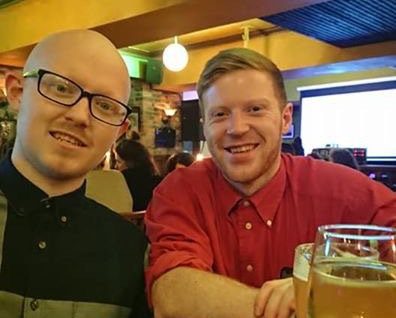
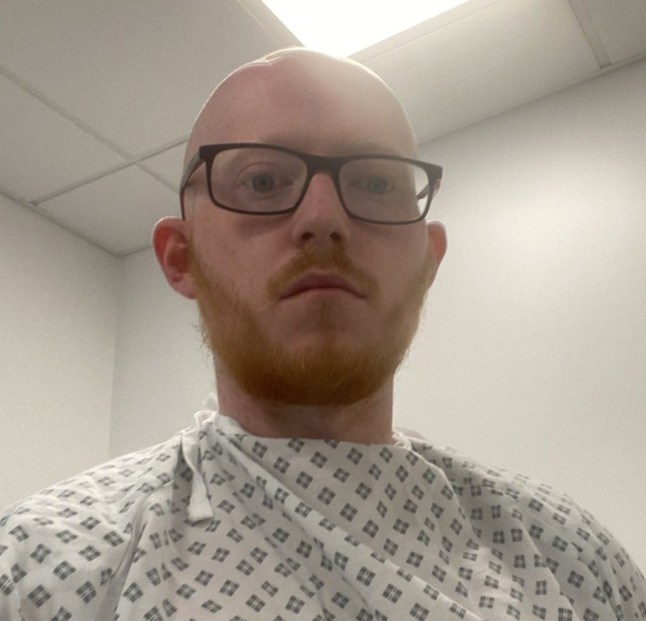
So Mum and great aunty took me to the local hospital, but right before we approached the hospital doors, I went all weak in my legs. I said to my mum: ‘I think I’m going to collapse.’
The next thing I remember was waking up on a trolley inside the hospital, but I was numb on one side of my body. I was panicking and had no idea what to do.
Doctors prioritised me for a CT scan and that same day they told me they found a mass on my brain in the pituitary gland. I didn’t know what this meant but I was trying to put two and two together.
Surely it couldn’t be cancer, I thought. I was only 21.
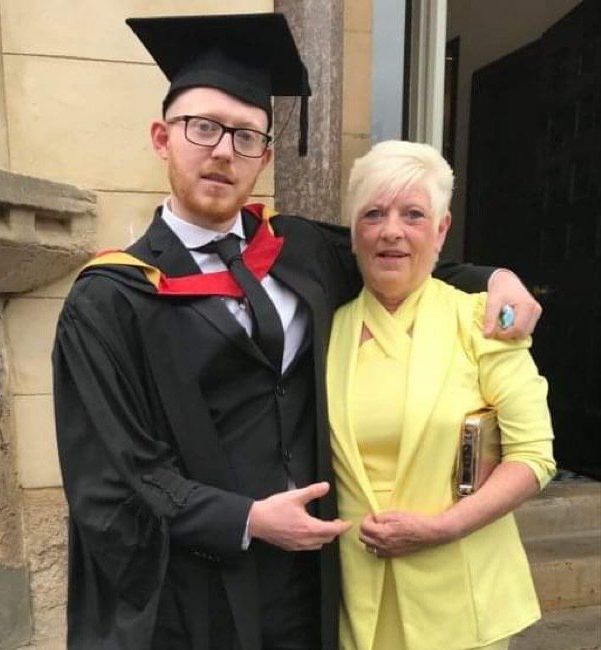
We had to do a biopsy, but it came back inconclusive. That’s when they told me that the fluid in my brain was not getting through due to the massive blockage so they would need to do an operation, which is when they confirmed the tumour was cancerous.
As soon as the doctors said that word to me, I was in shock. I felt emotionless.
Having seen what cancer did to Dad, my first question was: ‘How long have I got left?’ Thankfully, I was told the cancer looked treatable so at least that filled me with some confidence.
I started chemotherapy to try to shrink the tumour in the first week of May but during that very first session, my mum noticed something was very wrong. I was still experiencing the migraines, but I was extremely lethargic and sleeping 14 hours a day, lost about two stone, felt incredibly unwell and dipped in and out of consciousness.

So she flagged it with a nurse, who got a consultant and I ended up having an emergency MRI. That’s when doctors found that my tumour had haemorrhaged, which meant that we had to scrap the chemotherapy and go straight into surgery to stop the bleeding.
The risk of complications or even death had increased exponentially. My mum told me later that nurses were crying because they didn’t think I’d make it out alive.
Remarkably, after about eight hours in theatre, I came through it and was put in an induced coma for a couple of days.
When I woke up – I don’t remember this, but – Mum said I kept trying to figure out what was going on with the catheter that had been attached to me. Apparently that’s a great way to cut the tension after almost dying!
Sign up to this year's Metro Lifeline challenge
Someone is reported missing every 90 seconds in the UK. That means life is lonely, scary and uncertain for 170,000 families every year.
Missing People is the only UK charity dedicated to reconnecting them and their loved ones and that's why this year Metro is proudly supporting them for our 2025 Lifeline campaign.
To help raise vital funds for the charity we would love you to join us on on 3 May for a 25km, 53km or 106km hike on the beautiful Isle of Wight.
Registration starts at just £15 with a fundraising minimum of £240 (25km) / £360 (58km). Alternatively, you can pay for your place and set your own fundraising target.
Whether you want to do it as a group or are signing up solo, as part of Team Lifeline, you’ll receive tons of support and advice, so that every step you take can make a massive difference helping those whose loved ones have disappeared.
The haemorrhage meant that I actually lost my vision, so my mum had to help me with certain things like eating or getting in the shower. Thankfully, my vision eventually came back by June.
After a few days, I got moved to the high dependency unit at the Royal Victoria Infirmary in Newcastle, then to the Freeman Hospital to properly start chemo. Ward 34 there really left a huge impact on me.
That’s where I met Eve, my social worker from Young Lives vs Cancer, who I have the highest regard for. She liaised with my university to relay my situation, played puzzles to pass the time and was just really lovely.
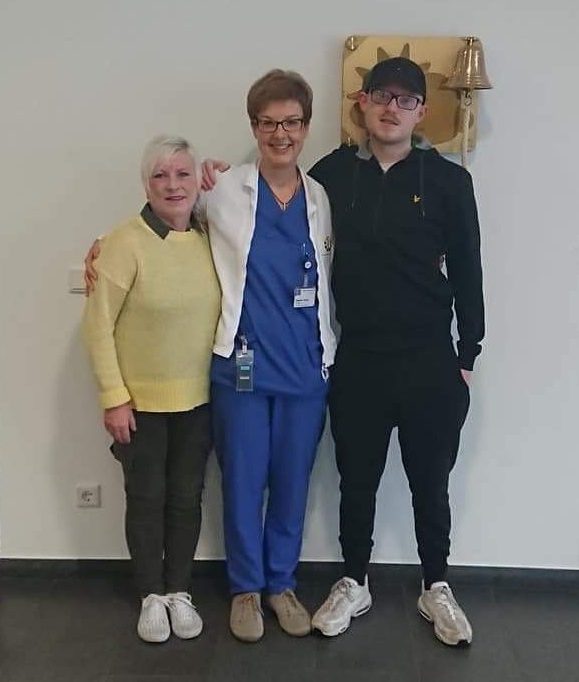
It felt like she was a second mum to me, especially after just losing Dad.
My treatment was really intense. I had 24-hour chemotherapy for around seven weeks, then I ended up having proton beam therapy (a type of radiotherapy that targets cancer cells) for a couple of months in Essen, Germany.
Once back in England by December 2019, I was due for an MRI to check if the cancer was all gone.
I remember being in the waiting room to get the results with my consultant and turning to my mum and saying: ‘This will be make or break’.
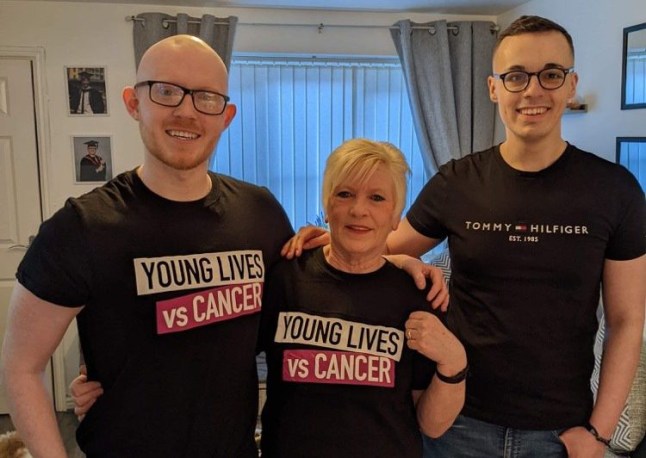
As soon as I was called into the room, the consultant immediately put me out of my misery and said that there was no cancer present in any of the scans.
I just burst into tears – and again while I rang the bell in the hospital to announce to everyone that I was in remission. I thanked the consultant profusely and even get emotional now thinking about it.
Today, I am officially cancer-free. There have been ups and downs since initially getting my diagnosis – and even after I was in remission, especially when it came to my mental health.
It’s through organisations like Young Lives vs Cancer and the Teenage Cancer Trust that helped me process such a huge ordeal. They connected me with people my age going through the same thing as me – and that was invaluable.
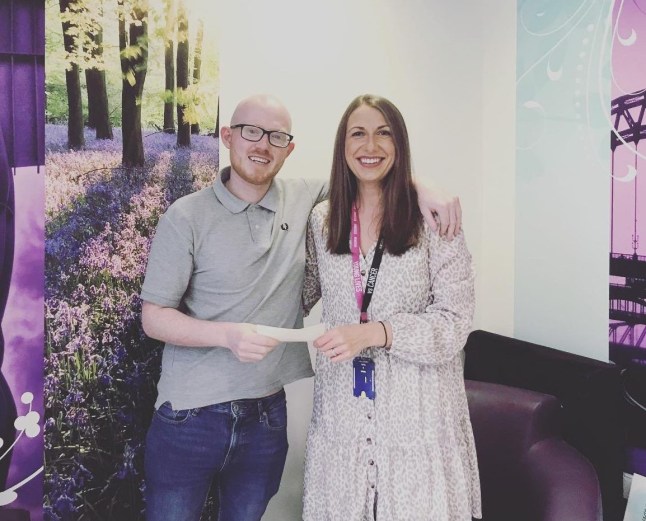
We’d do fun activities together like painting or workshops on how to manage stress. A big part of that is being able to laugh and joke around with people who just get it.
More Trending
When I look back at my cancer journey, I feel thankful for everyone I’ve met through this awful illness. I wish cancer didn’t take away Dad but I know he’d be proud of me for getting through it.
A lot of people are affected by cancer and the best way to demystify it is to talk about it. That’s why I’m sharing my story because I want people to know that – unlike my first thought after my diagnosis – life can go on.
As told to James Besanvalle
Get the rest you deserve
For more information about Young Lives Vs Cancer, go to their website here.
Do you have a story you’d like to share? Get in touch by emailing James.Besanvalle@metro.co.uk.
Share your views in the comments below.
MORE: Emmerdale’s Chas Dingle storyline brought home reality to me
MORE: Health warning for men who wake up for 30 minutes or more during the night














